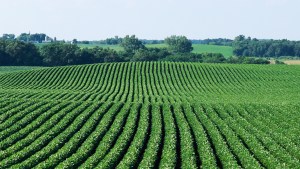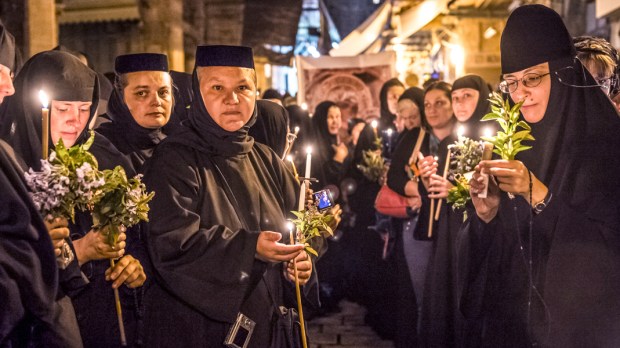During the Middle Ages there developed an annual tradition of blessing herbs on the feast of the Assumption, August 15. It coincided with harvest time and was an opportunity to give thanks to God for the bounty received.
The custom arose primarily from Germanic countries, and the Directory on Popular Pietydescribes it as “a clear example of the genuine evangelization of pre-Christian rites and beliefs: one must turn to God, through whose word ‘the earth produced vegetation: plants bearing seeds in their several kinds, and trees bearing fruit with their seed inside in their several kinds’ (Gen 1, 12) in order … to stem the damages deriving from poisonous herbs, and benefit from the efficacy of curative herbs.”
The reason why the blessing of herbs became associated with the Blessed Virgin Mary was due “most of all because of Isaiah 11, 1, and his reference to the ‘shoot springing from the side of Jesse,’ which would bear the blessed fruit of Jesus.”
The first part of the blessing, found in the Roman Ritual, describes how God created the many plants of the earth for the benefit of humans and to heal them.
Almighty everlasting God, who by your word alone brought into being the heavens, earth, sea, things seen and things unseen, and garnished the earth with plants and trees for the use of man and beast; who appointed each species to bring forth fruit in its kind, not only for the food of living creatures, but for the healing of sick bodies as well; with mind and word we urgently call on you in your great kindness to bless + these various herbs and fruits, thus increasing their natural powers with the newly given grace of your blessing. May they keep away disease and adversity from men and beasts who use them in your name; through Christ our Lord.
What’s interesting is that lately there has been a renewed interest in plants and natural remedies, looking to the earth that God created for cures. This blessing seeks to amplify the natural powers of these plants through the grace of God.
The second part of the prayer is more closely connected to the harvest festivals of ancient peoples and their desire to have God bless their produce.
God, who through Moses, your servant, directed the children of Israel to carry their sheaves of new grain to the priests for a blessing, to pluck the finest fruits of the orchard, and to make merry before you, the Lord their God; hear our supplications, and shower blessings + in abundance upon us and upon these bundles of new grain, new herbs, and this assortment of produce which we gratefully present to you on this festival, blessing + them in your name. Grant that men, cattle, flocks, and beasts of burden find in them a remedy against sickness, pestilence, sores, injuries, spells, against the fangs of serpents or poisonous creatures. May these blessed objects be a protection against diabolical mockery, cunning, and deception wherever they are kept, carried, or otherwise used. Lastly, through the merits of the blessed Virgin Mary, whose Assumption we are celebrating, may we all, laden with the sheaves of good works, deserve to be taken up to heaven; through Christ our Lord.
The final prayer invokes the Blessed Virgin Mary and seeks her aid to use wisely the fruits of the earth.
God, who on this day raised up to highest heaven the rod of Jesse, the Mother of your Son, our Lord Jesus Christ, that by her prayers and patronage you might communicate to our mortal nature the fruit of her womb, your very Son; we humbly implore you to help us use these fruits of the soil for our temporal and everlasting welfare, aided by the power of your Son and the prayers of His glorious Mother; through Christ our Lord.
While it may be an outdated prayer for agrarian societies, with the recent interest in “returning to the earth,” this just might be a tradition worth reviving.

Read more:
The beautiful and ancient custom of blessing fields on Rogation Days

